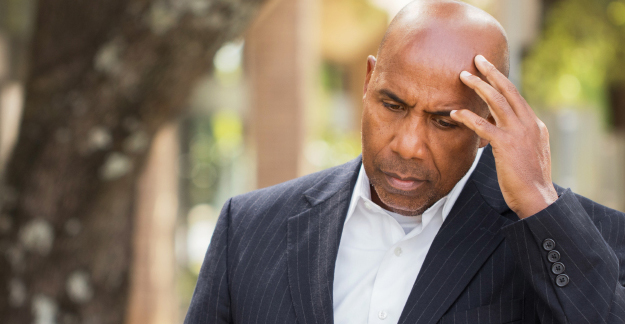Browse This Article
Flomax Side Effects
Among the worst medication side effects I’ve experienced in the last decade were listed right on the package insert but, like most people, I didn’t read that attached print-out.
The drug involved was Flomax. A doctor prescribed it for me because I had a kidney stone. In fairness to Flomax, I was also taking a painkiller at the same time so the side effects may have been intensified from a combination of the 2 drugs.
But the episode was dangerous. I became so dizzy and nauseous while driving on a busy highway that I had to pull over on the road’s narrow shoulder. It was 30 minutes or so before I felt I could resume driving. Of course, I should not have been driving in the first place having taken both drugs — something the doctor did not warn against but I would have learned had I read the Flomax package insert.
Benign Prostatic Hypertrophy (BPH) Drugs
Flomax and other alpha-blockers are usually prescribed to treat benign prostatic hypertrophy (BPH), a condition in which the prostate gland becomes enlarged (but not cancerous) and pinches the urethra, causing urinary problems.
BPH drugs are very widely prescribed. That’s mostly because BPH is one of the most common medical problems among men aged 50 and older. It affects about 50% of men between the ages of 50 and 64. By age 65, that rate rises to nearly 75% of men, and by age 80, nine in 10 men have BPH. But the drugs are also widely used for two reasons: Too many doctors are prescribing them and men want to use them rather than first try lifestyle changes and non-drug approaches to reducing BPH symptoms.
BPH Symptoms
BPH symptoms — chiefly the need to pee more often and a strong urgency to pee — are famously variable, ranging from no symptoms to mild ones, with a smaller percentage of men experiencing severe symptoms (such as the need to get up and pee 4 to 5 or more times during the night). Obviously, that can be annoying and disruptive of a good night’s sleep. At the extreme, some men have to urinate 20 or more times a day, which clearly creates problems.
Notably, only about half of all men with BPH will have symptoms that warrant any treatment at all, other than lifestyle changes. That includes 1 in 3 men in their late 60s and 1 in 2 men in their late 70s.
What follows is advice on BPH treatment and information of the side effects of BPH drugs. Both derive primarily from a Consumer Reports Best Buy Drug report that compares the effectiveness, safety, and cost of medicines used to treat BPH. The report is based on an in-depth analysis of studies done from the 1960s through 2008. Researchers at the US Department of Veterans Affairs and the Oregon Health & Science University Evidence-based Practice Center conducted the analysis.
Do’s & Dont’s
- See a urologist if you are peeing a lot more than you used to; have increased urgency around urination; have the strong need to urinate and the sensation that you have not fully emptied your bladder; and/or have incontinence (urine leakage). (See symptoms, below.)
- If you’ve ever been told by a doctor that your prostate is enlarged — after a routine rectal exam — all the more reason to see a urologist if you begin having symptoms. Because the symptoms of BPH can be similar to prostate cancer, you need to have that ruled out. Always see a doctor if you have pain on urination that lasts a day or longer.
- Your doctor may recommend a PSA (prostate specific antigen) test to check for the possibility of prostate cancer if you have an enlarged prostate. Know that this test is controversial because a high PSA reading can lead a doctor to recommend a biopsy, which is painful. But research has shown that the majority of people with high PSA readings don’t have prostate cancer. Discuss this thoroughly with your doctor.
- Try lifestyle changes first if BPH is diagnosed, especially if your symptoms are mild. The adjustments usually provide relief. If your symptoms are low-grade or mild, behavior changes may resolve the problem completely, ease the inconvenience, and forestall the need for a drug. These changes include going to the bathroom as soon as possible when you first feel the urge and not “holding it;” reducing or eliminating intake of alcohol, caffeinated drinks, antihistamines and decongestants; and limiting fluid intake of any kind, but especially caffeine and alcohol, before bedtime. (See more in Box.)
- If such changes are not relieving your symptoms enough, talk with your doctor about the various medicines available. There are choices to be made. Two main classes of drugs are commonly used to treat BPH. One acts fast and usually brings relief within 3 to 10 days. The other class takes several months to have an effect but has more long-lasting results because it can prevent further prostate enlargement. Quite often, one drug from each class is used in combination for people with more severe prostate enlargement and symptoms.
- Your doctor may consider another type of drug — Cialis (tadalafil). Cialis is approved for the treatment of both erectile dysfunction and BPH, together and separately. A sizable but unknown percentage of men with ED also have BPH and vice versa. Cialis’ side effects are quite distinct from other BPH drugs and warrant careful consideration, especially if you have a history of heart disease or heart attack. Because like many drugs, Cialis has its own list of side effects, it’s best to only take the drug if you also clearly have ED and educate yourself well on the drug, in consultation with your doctor. For some men, that may mean resisting the temptation to try Cialis when they get a BPH diagnosis — “just to see what happens,” so to speak.
- Most BPH drugs (there are over 15 in all) are available as less expensive generics. Cialis is not available as a generic so it’s more costly. For that reason, your insurer may question a prescription of Cialis to treat HBP if you do not have ED since effective and far less expensive drugs are available.
Side Effects: A Drug Category Comparison
You and your doctor’s choice of a BPH drug may be based more on its side effect profile than effectiveness.
The 2 main classes of BPH drugs are alpha-blockers and 5-alpha-reductase inhibitors. (Sorry for the technical names, but they are worth knowing because your doctor may actually prescribe them.)
The most common side effects of alpha-blockers are reduced semen during ejaculation, headache, upset stomach, and stuffy or runny nose. Because alpha-blockers work by relaxing certain muscles and help small blood vessels remain open they can cause low blood pressure, dizziness and fainting, especially when you first start taking them. (That was my experience.)
As a result, it’s critical to be prepared. That includes not driving or operating machinery when you first start taking the drug. You will want to start taking alpha-blockers at home, at night, and near a bed — and not during the day. That might be the case for days or even a week or more.
With the older alpha-blockers — doxazosin, terazosin, and prazosin — your doctor should start you on a low dose and build up to a higher dose over a period of a few weeks to give your body time to adjust to the medicine. That process isn’t necessary with the newer alpha-blockers (Flomax, Rapaflo and Uroxatral).
Also be aware that low blood pressure caused by the alpha-blockers can fall to dangerous levels if you’re also taking a high blood pressure drug or an ED drug such as sildenafil (Viagra), vardenafil (Levitra) or tadalafil (Cialis). So don’t take an alpha-blocker with those other drugs without first discussing this approach with your doctor.
Men with prostate enlargement who are planning to have cataract surgery should be aware that all alpha-blockers can cause a complication called intra-operative floppy iris syndrome, or IFIS. This condition causes the iris of the eye to become limp due to increases in fluid levels in the eye. You should alert your eye surgeon that you are taking alpha-blockers if you plan on having this surgery.
In rare cases, the alpha-blockers can cause painful erections that last for hours. If not treated, this side effect can lead to a permanent inability to achieve erection, so you should seek immediate medical attention if you develop this condition.
The side effects of 5-alpha-reductase inhibitors are more worrisome to many men. They include a reduced sex drive and difficulty achieving and maintaining an erection. While in clinical studies only around 2% of men who developed any sexual difficulties found them to be severe enough to stop taking the medicines, but anecdotally, the percentage of men having sexual side effects is higher though not well-documented.
For that reason, the FDA in April 2012 updated the label of finasteride (Proscar and Propecia) to note that men have reported decreased libido and problems with ejaculation and orgasms that continued for weeks to months after they stopped taking the medicines. Although those sexual side effects have not been clearly linked to Propecia or Proscar, the FDA said they were added to the labels because the reports indicate the drugs could cause a broader range of side effects that men should be aware of if they consider taking one of these medications.
There also appears to be a small increased risk of more severe prostate cancer in men who use 5-alpha-reductase inhibitors, even as there’s an apparent overall decreased incidence of prostate cancer in men taking the drug, according to a recent FDA warning based on two recent clinical trials.
In addition, 5-alpha-reductase inhibitors can reduce levels of prostate specific antigen, or PSA, that’s used to screen for prostate cancer. Patients who are appropriate candidates for these drugs tend to have higher PSA levels, but if the medicines lower their PSA levels it could make it more difficult to detect prostate cancer. There are strategies that attempt to account for this issue when reading the results of PSA tests, so make sure your doctor is aware that you are taking one of these drugs if your PSA level is being tested.
| BPH Drugs and Side Effects | |
| Drug Class | Side Effects |
| The alpha-blockers (alfuzosin, doxazosin, prazosin, silodosin, tamsulosin, terazosin) What they do: relax muscles in the bladder |
|
| 5-alpha-reductase inhibitors (finasteride, dutasteride) What they do: shrink prostate tissue by blocking a hormone |
|
Making the Choice
If you and your doctor decide that a drug is needed to treat your BPH, the Consumer Reports Best Buy Drug analysis recommends that you consider the alpha-blocker doxazosin as your first choice. This drug has a long track record of being both safe and effective. It’s also available as an inexpensive generic drug, costing $10 or less for a month’s supply.
If your doctor later wants to add a 5-alpha-reductase inhibitor to your regimen, Consumer Reports recommends generic finasteride.
But be warned: This approach may not bring immediate relief. Studies indicate that combination treatment with an alpha-blocker and a 5-alpha-reductase inhibitor doesn’t generally provide additional benefit over an alpha-blocker alone in the first 12 months of treatment. Over the long-term, however, combination therapy does appear to help prevent symptoms from becoming worse.
One study, for example, found that after 4 years of treatment with doxazosin plus finasteride, symptoms worsened in only 5.3% of the men compared with about 10% of those who received either drug alone. Men with the greatest prostate enlargement got the most benefit from the combination therapy. Another study involving the combination treatment of the alpha-blocker tamsulosin and the 5-alpha-reductase inhibitor dutasteride (Avodart) in men with very large prostates found that both drugs together provided greater improvement in symptoms after 1 and 2 years of treatment than either drug alone.
However, due to the increased risk of side effects with combination therapy, this treatment strategy is typically limited to men with very bothersome symptoms and very enlarged prostates.
Symptoms of BPH
- Slowed or delayed start to urinating
- Needing to urinate more often
- Needing to urinate two or more times during the night
- Weak flow of urine
- Dribbling of urine after finishing
- Straining to urinate
- Strong and sudden urge to urinate
- Feeling that the bladder is not completely emptied after urinating
- Sudden inability to urinate
- Incontinence (urine leakage)
Lifestyle Changes That Relieve BPH Symptoms
- Urinate when you first feel the urge; don’t wait.
- Don’t rush urination. Take your time and relax before, during and after to give your bladder extra time to empty if the stream is slow or intermittent.
- Practice “double-voiding”: Urinate as much as possible, relax for a moment, and then go again.
- Urinate before car trips, meetings or movies.
- Spread fluid intake throughout the day and reduce it before bedtime, especially consumption of coffee, tea or caffeinated beverages. Do not avoid fluid intake to reduce the need to urinate. That can cause dehydration.
- Drink alcohol and caffeine in moderation or not at all.
- Avoid antihistamines and decongestants when possible.
- If you take a diuretic (a type of high blood pressure pill), ask your doctor if you can take a lower dose or a different drug.
- If you have diabetes, controlling blood sugar can reduce frequent urination.






